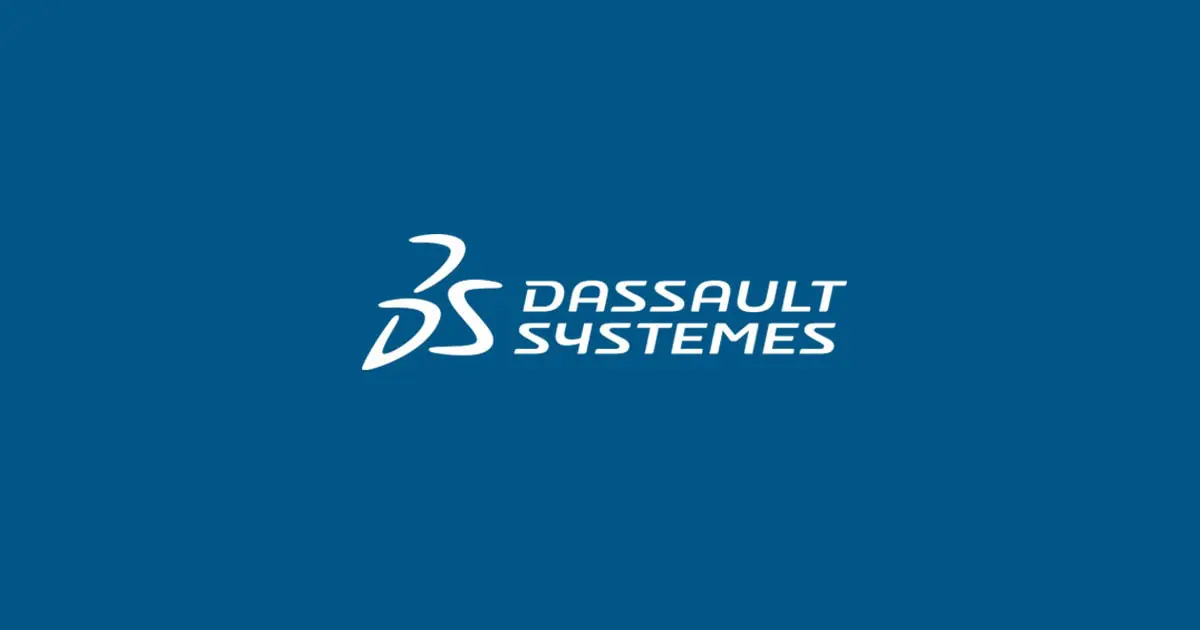Thailand’s manufacturing sector is undergoing dramatic change with fast expanding adoption of the connected, innovation-driven “Smart Factory” model. At the same time, Thai manufacturers also face the challenge of up-skilling and re-skilling their current workforce to take on new work responsibilities made possible by automation and digitalization, as well as recruiting new workers with future-ready digital skills. We bring you some key takeaways from our technical experts and guest speakers at the “Reinventing Manufacturing” industry breakout track of Dassault Systèmes’ 3DEXPERIENCE FORUM Asia Pacific South 2019 in Thailand
The Industry Renaissance and Manufacturing Digitalization
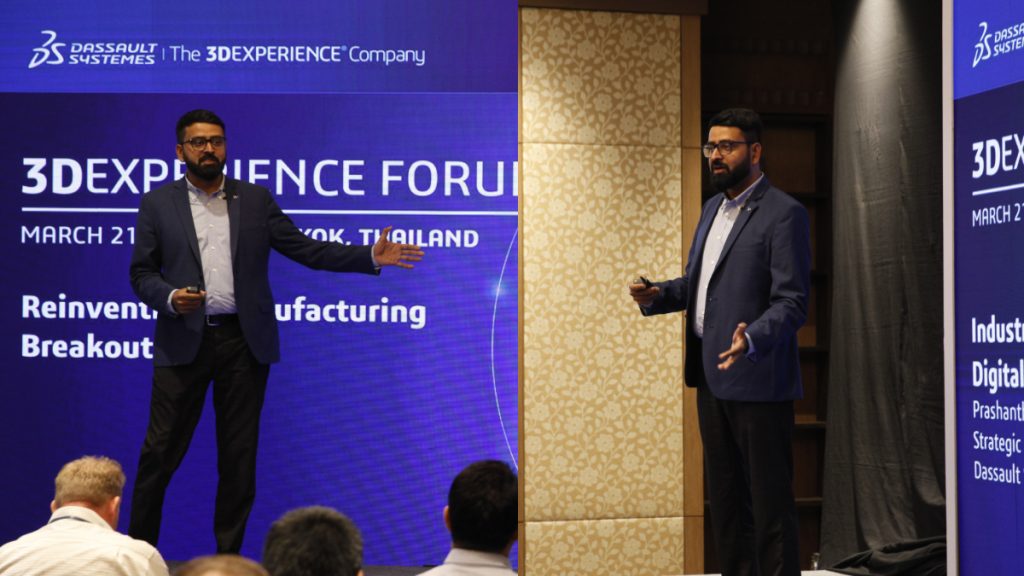
Prashanth Mysore, Dassault Systèmes’ Strategic Business Development & Offer Marketing
- “The Industry Renaissance” is creating new operational challenges in manufacturing. In today’s Experience Economy, the value of products is based on the quality of the customer’s experience, rather than the product itself. Manufacturers need to relook at their production operations in the context of the customer’s experience.
- “Industry 4.0” is yesterday’s way of thinking, where manufacturers apply new technology to transform their supply chain into a connected value chain. The Industry Renaissance is about transforming the value chain into a value network of makers and innovators who come together on shared platforms to collaborate and innovate on new types of products and services with the customer’s experience in mind.
- A traditional “value chain” describes a series of value-adding activities from the supply side (raw materials, inbound logistics, production processes) to the demand side (outbound logistics, marketing, sales).
- With manufacturing digitalization, businesses are empowered to create a “value network”, where multiple disciplines and functions, such as production, distribution, marketing, customer service, are connected on one shared platform where not only their designers and engineers, but also their entire extended network of trading partners and suppliers, contribute to creating value for the customer.
The 3DEXPERIENCE Twin
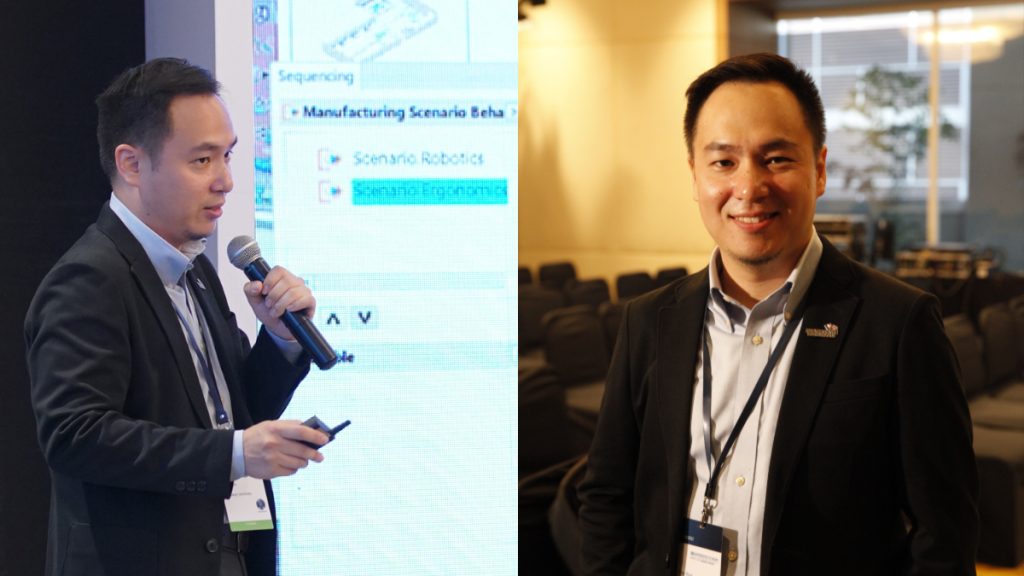
Liang Ying Shun, Dassault Systèmes’ DELMIA AP South Solution Consultant
- The 3DEXPERIENCE Twin allows manufacturers to work in both the virtual and real world, to operate an entire 3D virtual model of their factory where they can simulate product designs and production processes virtually before replication in the real world.
- The 3DEXPERIENCE Twin can drastically cut down production time-frames which can lead to substantial cost savings, as it allows the entire production process, from planning, simulation, testing to validation, to be executed in the virtual world.
- By understanding the differences and the interplay between the value-creation processes of the physical world and those of the virtual one, manufacturers can holistically solve strategic production issues to achieve a lean and agile manufacturing process.
The 3DEXPERIENCE Marketplace
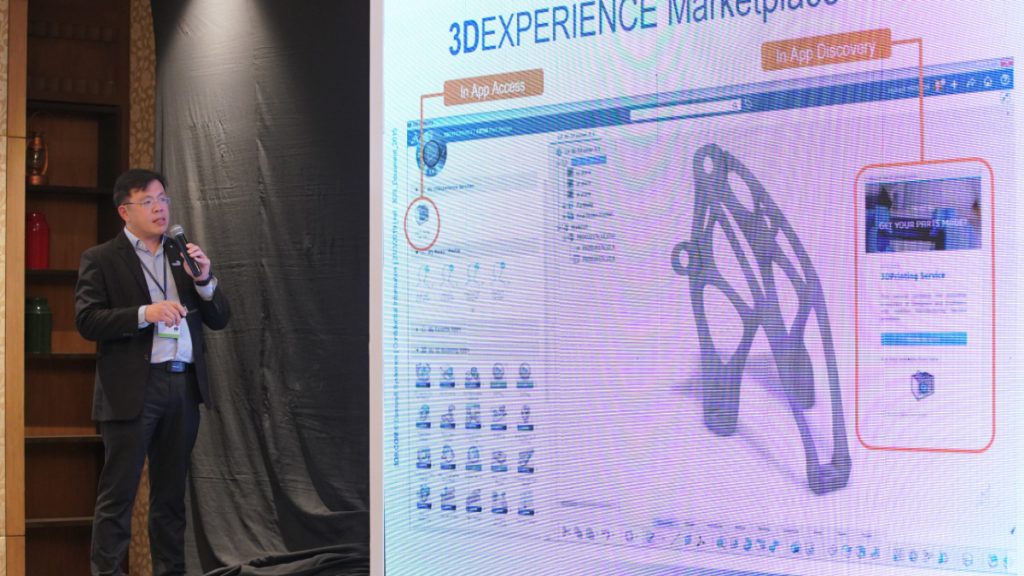
Low Hock Chuan, Dassault Systèmes’ Professional Solutions Senior Solution Consultant, AP South
- To meet both time-to-market and profitability goals, manufacturers need to quickly and easily identify, hire and collaborate with the best trading partner for each task. Manufacturing digitalization has enabled the creation of “value networks” that connect multiple stakeholders, functions and trading partners on one platform.
- The 3DEXPERIENCE Marketplace extends the “value networks” of manufacturers, giving them access not only to their preselected suppliers, but to an extended ecosystem for industrial services across a range of services throughout their innovation process.
- A flexible and extended value network with the 3DEXPERIENCE Marketplace allows for greater agility and speed in the innovation process, which are critical in today’s economy.
Building the Manufacturing Workforce of the Future
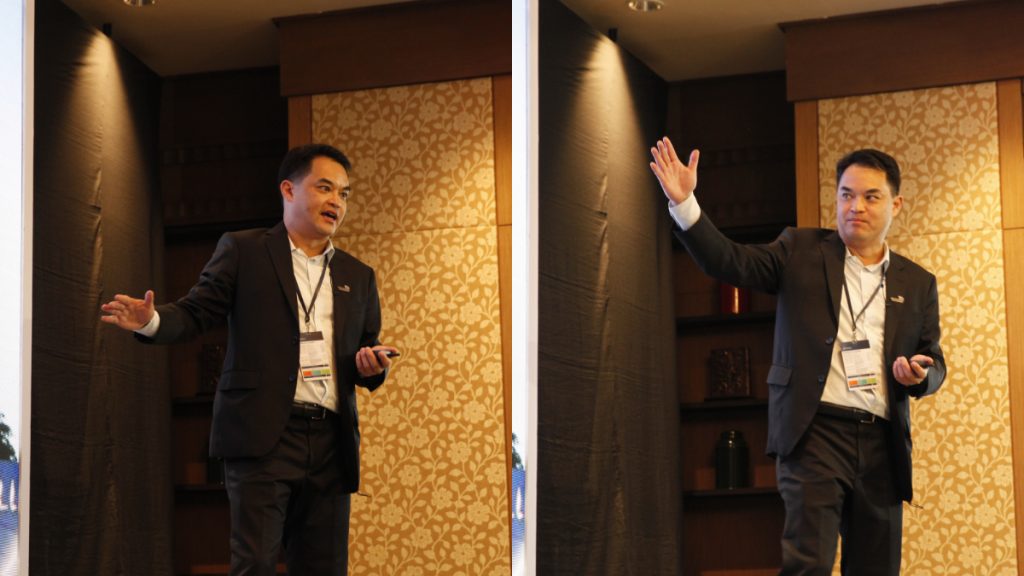
Eric Chow, Dassault Systèmes’ Academia Lead, AP South
- To thrive in the age of the Experience Economy, manufacturers have to move away from the traditional production-based business model, to an innovation-based business model.
- Likewise, the manufacturing workforce must transform their mindsets and skillsets away from repetitive production work, which is fast being automated, to become makers and innovators who can create ideas in a virtual world that can be used in the real world of manufacturing.
- Given the accelerated rate of technological innovation and complexity of the transformation taking place in manufacturing, formal education alone is not enough to create this future workforce of makers and innovators.
- Leaders from the industry, government, labour unions and academia must forge new multi-stakeholder partnerships to develop industry-relevant education and training programs to ensure the continued employability of the current manufacturing workforce and cultivate Thailand’s manufacturing workforce of the future.
Customer Showcase: B&R Enclosures
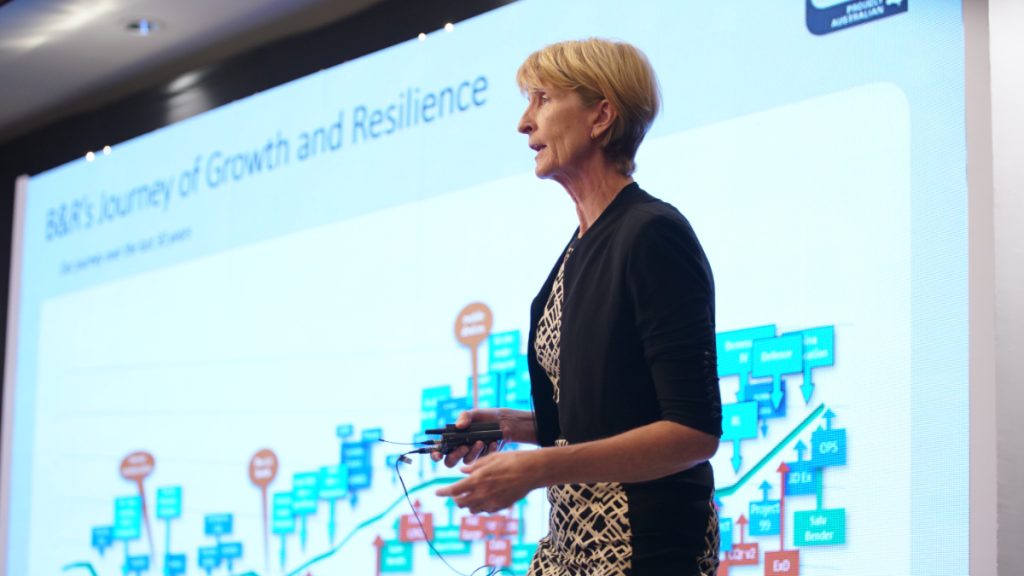
Chris Bridges-Taylor, General Manager, B&R Enclosures Pty Ltd
B&R Enclosures is an Australian family-owned and operated business which has built a reputation for excellence in the design and manufacture of enclosure and cabinet solutions.
At the industry track, they presented key aspects of their success in digital transformation to the delegates:
- At the heart of digital transformation is the workforce. Workforce development and training is a cornerstone of B&R’s business strategy to ensure the company has the skills needed to operate digitized manufacturing processes and ensure the growth of B&R’s business.
- “Creating a great customer experience” has been the strategic objective of B&R’s transformation program from the beginning. Every digitalization process is implemented with the customer’s experience in mind. For example, workflow operations that resolve customer needs quickly and smoothly; agile methodology that enable fast, flexible changes to product designs to deliver customer value.
- The company is cultivating a collaborative innovation-led culture where designers, engineers, sales and customer service personnel all participate in the product design and production processes in a digitalized environment, with agile manufacturing flexibility to support changing customer expectations and market trends.

